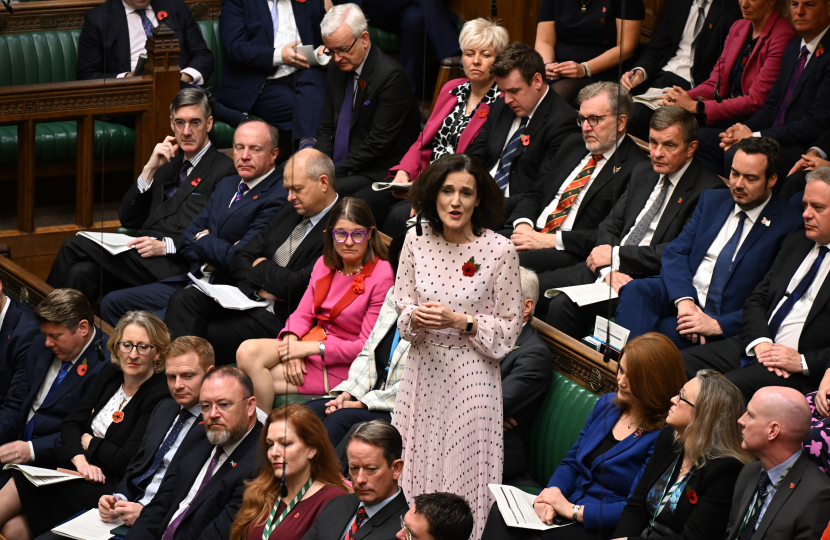
Theresa Villiers started out as a Member of the European Parliament in 1999 and joined the Westminster ranks in 2005, holding a number of positions in opposition and in Government. Here's an overview of her career so far:
- MEP for London, 1999 - 2005
- Deputy Leader of the Conservatives in the European Parliament, 2001 - 2002
- MP for Chipping Barnet 2025 - 2024 (re-elected 2010, 2015, 2017 & 2019)
- Shadow Chief Secretary to the Treasury, 2005 - 2007
- Shadow Secretary of State for Transport, 2007 - 2010
- Minister for Transport, 2010 - 2012
- Secretary of State for Northern Ireland, 2012 - 2016
- Secretary of State for the Environment, Food, and Rural Affairs - 2019 - 2020
- Member of the Intelligence and Security Committee of Parliament - 2020 - 2024
You can read Theresa's final contributions in Parliament below.

